I’ve felt a pit in my stomach for years. It doesn’t ruin every single day or inhibit my ability to feel joy, but it’s there, and I’m reminded of it frequently. Every time I see a new example of easily avoidable human suffering, every time I learn about a new technology seemingly designed to harm others, every time I witness the most hateful and ignorant ideologies get a free and unchallenged platform, I feel the pit once again.
That pit isn’t just sadness or despair; it’s a feeling of powerlessness, a feeling that everything on this planet will continue to worsen and there’s barely anything I can do about it. And despite the many privileges I enjoy—after all, I am a straight, cisgender white man who went to private school his whole life—I know that, to a certain extent, I am only so guarded from the perils of the future.
I recently completed Metal Gear Solid 2: Sons of Liberty as part of my 2024 Backlog Challenge. The game came out in November 2001, just two months after 9/11, but its themes and messages could easily have come from something that came out last week.
A meta-commentary on gaming as a whole, Metal Gear Solid 2 examines what exactly it means to have control over one’s fate, and whether those outside the sphere of influence truly have any power at all. More than twenty years after its launch, the game asks you, the one who holds the controller, if you ever truly believe you are in control. If so, what does that even mean?
In a sense, though, isn’t every game some kind of fantasy about having power?
Spoilers ahead for the entirety of Metal Gear Solid 2: Sons of Liberty.

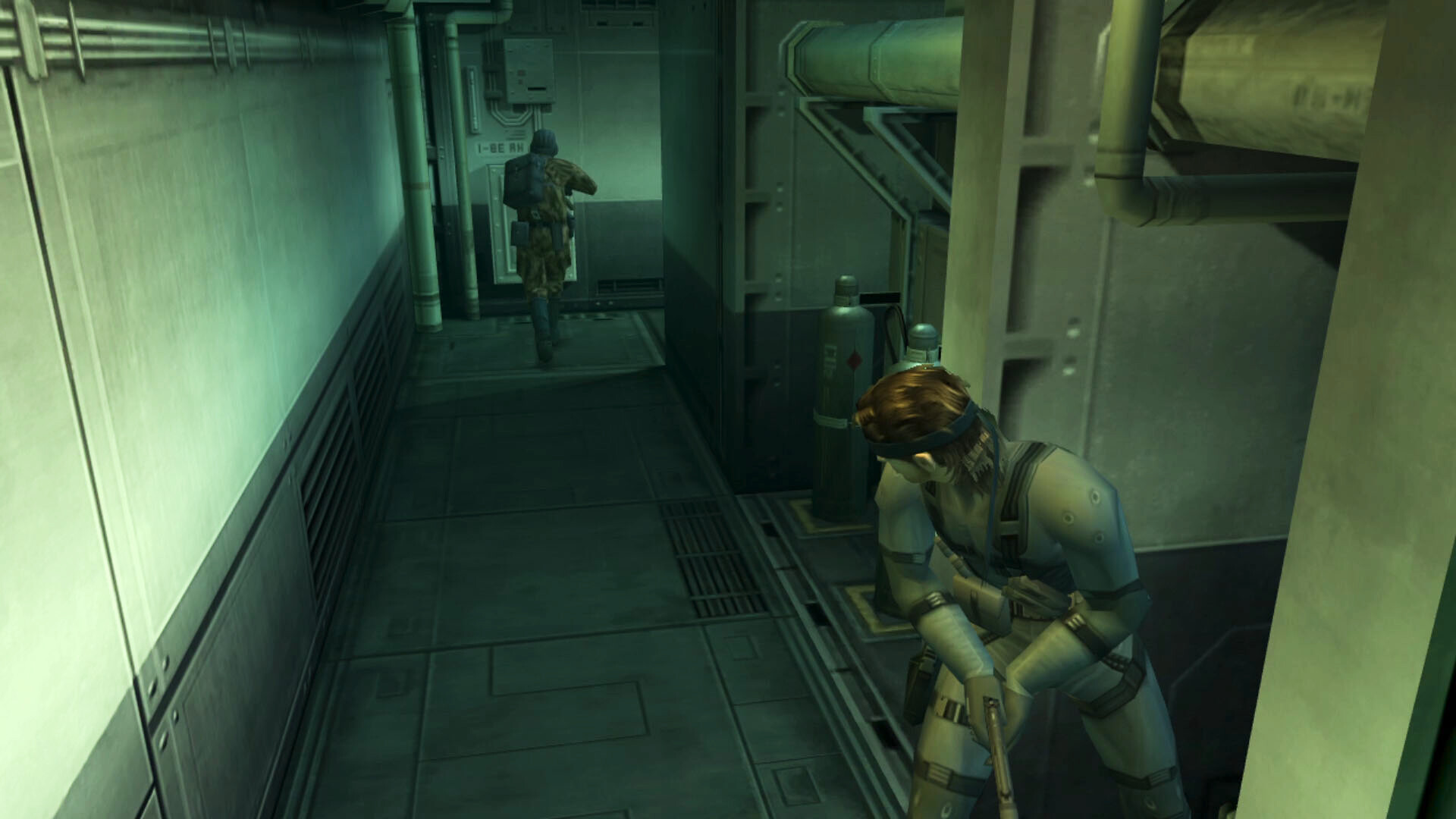
The Skinny on MGS2
Much like every other game in the franchise, the plot of MGS2 is riddled with details, including random instances of supernatural powers and characters who never seem capable of dying. Typically, I feel little urge to explain every component of a game’s plot when discussing its larger themes, but it’s impossible to fully understand what games like MGS2 are about without, well, knowing what literally happens.
With that in mind, here’s a breakdown of the title’s major plot points (for those of you fully familiar with the game’s plot, skip to the section titled “Controlling Chaos”):
- Two years after the events of the previous game, Solid Snake, the protagonist from the first Metal Gear Solid, infiltrates a tanker near New York City where U.S. Marines are celebrating a new Metal Gear model: Metal Gear RAY. (A Metal Gear, in short, is a large advanced mech capable of firing nuclear warheads.) Snake, whose goal in this endeavor is to take pictures of RAY and upload them digitally to warn others of its existence, runs into and battles Olga Gurlukovich, who is working with Russian mercenaries led by Revolver Ocelot, a villain from the first game. The mercenaries attack the tanker in hopes of seizing RAY, though Ocelot betrays them, scuttles the tanker, and escapes with RAY himself. Snake is presumed to have died.
- A couple years after the tanker incident, the player inhabits Raiden, who has been tasked by the organization FOXHOUND to rescue U.S. President James Johnson and a number of hostages from a supposed environmental clean-up facility called the Big Shell. The plant, located about 30 kilometers offshore Manhattan, has just been attacked by a group known as the Sons of Liberty. Accompanying the Sons of Liberty is a former special forces unit known as Dead Cell, which consists of former President George Sears, explosives expert Fatman, seemingly unkillable Fortune, and Vamp, who is basically just a vampire.
- This is Raiden’s first mission with FOXHOUND, and he claims he has never experienced espionage and live battle outside of VR missions. Throughout the game, Raiden communicates with an unnamed colonel (who bears a resemblance to Colonel Campbell from MGS1) and Rose, an analyst for FOXHOUND who is also Raiden’s girlfriend.
- Raiden encounters immediate allies in Iroquois Pliskin (who is obviously Solid Snake, who faked his death during the tanker incident) and Peter Stillman, a bomb disposal expert who assists Raiden and Pliskin in disabling bombs planted by Fatman. After defeating Fatman, Raiden meets a cyborg ninja who goes by Mr. X, who also aims to assist Raiden in his endeavors, but only at certain times.
- The player later learns that Solidus Snake, a clone of Solid Snake, has been leading the Sons in their supposed effort to destroy the facility, is conspiring with Ocelot in order to do so, and has control of Metal Gear RAY.
- Eventually, Raiden sneaks his way into a room where President Johnson was trapped, only for the president to reveal that everything about America’s democratic process is controlled by a shadow organization known as the Patriots. Moreover, the Big Shell is actually a sham facility designed to hide Arsenal Gear, a submersible mobile fortress that contains an optical neural AI called “GW,” which the Patriots intend to use to censor all forms of digital information online, as well as control all weaponry of the four branches of the U.S. military. Arsenal Gear is guarded by a set of mass-produced Metal Gear RAY machines, all loaded with nuclear warheads.
- The president also admits that he had conspired with Solidus, who actually was President Sears in the past, to activate the new Metal Gear and launch nuclear weapons of his own volition in a misguided attempt to seize more power for himself and gain independence from the Patriots. Additionally, Johnson tells Raiden that Solidus intends to seize Arsenal Gear and overthrow the Patriots entirely, but then Ocelot enters the room and kills Johnson before leaving.
- In an effort to prevent use of the dangerous GW, Raiden seeks to rescue computer programmer Emma Emmerich, stepsister of Solid Snake ally Hal Emmerich (known by his codename “Otacon”), so she can upload a virus into the GW to disable Arsenal. Raiden must twice battle Vamp, a vampire and another member of Dead Cell, in order to ferry Emma to safety, though Vamp stabs her in the back before Raiden ultimately kills him.
- Whilst Emma bleeds to death in the arms of her stepbrother, Raiden and Snake attempt to upload the virus, though it triggers a failsafe and doesn’t fully upload into Arsenal Gear. After commanding Otacon to save the rest of the hostages before the area they’re in collapses due to the failsafe, Mr. X appears and removes their mask to reveal Olga, who knocks out Raiden and surrenders him to Solidus and Ocelot.
- While keeping a stripped-naked Raiden in captivity in Arsenal Gear, Solidus reveals that he is Raiden’s adoptive father, and that Raiden isn’t some up-and-coming operative with only VR experience; he’s a former child soldier trying to suppress his past memories. After Raiden (and Ocelot) leave the room, Olga frees him and tells him to rendezvous with Solid Snake, who says that Raiden’s capture was staged so they could all gain access to Arsenal Gear.
- After fighting their way through Arsenal Gear, Snake and Raiden are captured by Solidus, Ocelot, and Fortune. The two are taken to the roof of Arsenal, and Solidus kills Olga. At this point, Ocelot reveals himself to be an agent for the Patriots, and that everything that had happened at Big Shell had been orchestrated by the Patriots to mimic the events of the first Metal Gear Solid game in order to replicate a super soldier on par with Solid Snake—in this case, Raiden—known as the S3 Plan (Solid Snake Simulation).
- Following this revelation, Ocelot, who had prior villain Liquid Snake’s arm grafted on himself, becomes possessed by Liquid Snake, who explains that he intends to use Ocelot’s knowledge and Metal Gear RAY to hunt down and kill the Patriots. As Arsenal loses control, Liquid escapes with RAY, and Snake jumps off Arsenal to pursue him.
- Arsenal Gear crashes into Manhattan, landing just outside Federal Hall. At this point, an AI impersonating the Colonel and Rose said that GW was the only AI that had been destroyed, and the the actual intent of the S3 Plan (which is actually named Selection for Societal Sanity) was to control human thought to avert society’s potential downfall in the digital era from trivial information drowning out knowledge and truth. The AI then orders Raiden to kill Solidus, as failure to do so will result in the death of Olga’s infant child and Rose.
- After Raiden kills Solidus in an epic swordfight, Snake appears once again, telling Raiden that he and Otacon intend to rescue Olga’s child and find the Patriots. Raiden reunites with the real Rose, who is pregnant, and decides he needs to create a new reality for himself through his unborn child.
- During an epilogue, Otacon and Snake discuss data they found on the Patriots, only to discover that all twelve members of the Patriots’ highest council, the Wiseman’s Committee, have allegedly been dead for a century.
(All clear? All clear.)

Controlling Chaos
From the jump, Metal Gear Solid 2 fiddles with player expectations and subverts any preconceived notions about what to expect from a tactical espionage action experience. The opening hours on the tanker appear like any standard sequel: bring back the main character from the previous game, put him in a similarly perilous scenario, and equip him with some new abilities (such as the tranquilizer pistol) and new challenges (take photos of Metal Gear RAY and upload them to the web). Much like in the first game, this opening section empowers the player, giving them clear instructions and the tools for success. The bad guys don’t stand a chance.
Once Ocelot blows up the vessel with Metal Gear RAY and appears to kill Solid Snake, however, nothing is the same. Already, the player loses control of one of the most basic concepts in any video game: playing as the face on the box.
The transition from Snake to Raiden as the protagonist of Metal Gear Solid 2, while extraordinarily ambitious for its time, is merely the tip of the iceberg when it comes to the game’s repeated references to powerlessness. Nobody in the story seems to know the whole truth or even what to do with whatever new information they uncover. Every step of the experience is ultimately contrived, which is technically true of basically any linear video game, but it feels even more so here, as it’s especially difficult to tell if Raiden and company really accomplished that much.
On a macro level, the comparisons to MGS2’s version of America and actual modern day America are clear as day.
At the end of MGS1, Solid Snake averts a nuclear disaster and takes down his archnemesis. At the end of MGS2, Raiden has killed Solidus and helped prevent the deployment of Arsenal Gear, but it still barely feels like anybody actually won.
The Patriots still control everything, even if there’s no evidence they even exist (at least in a corporeal form). Raiden felled the evildoer, but that’s still exactly what a corrupted computer program told him to do. Who knows what happened to Ocelot? The Sons of Liberty haven’t fully been stopped either, with several members still alive and out in the wild. Despite the shreds of nobility in their desire to free themselves from the yoke of the Patriots, their existence still presents a very real threat.
In terms of the bigger picture, Raiden and Snake have vanquished few foes, made more enemies, lost several allies, and still have to contend with the knowledge that so much of what they have done and will do has been predetermined by forces they can’t see. Things are better than they were before, but how much better? Does it even matter?
Throughout the story, Raiden never fully knows who his true allies are, the depths of his enemies’ depravity, who the worst of his enemies are, or even what anybody’s endgame is supposed to be. Many people have died on his watch, and he can’t even say for sure he brought anyone but Solidus to justice. Despite his masterful ability to survive everything that’s transpired, he still exudes a measure of impotence and loneliness at the end, barely able to make sense of everything he’s seen and heard.
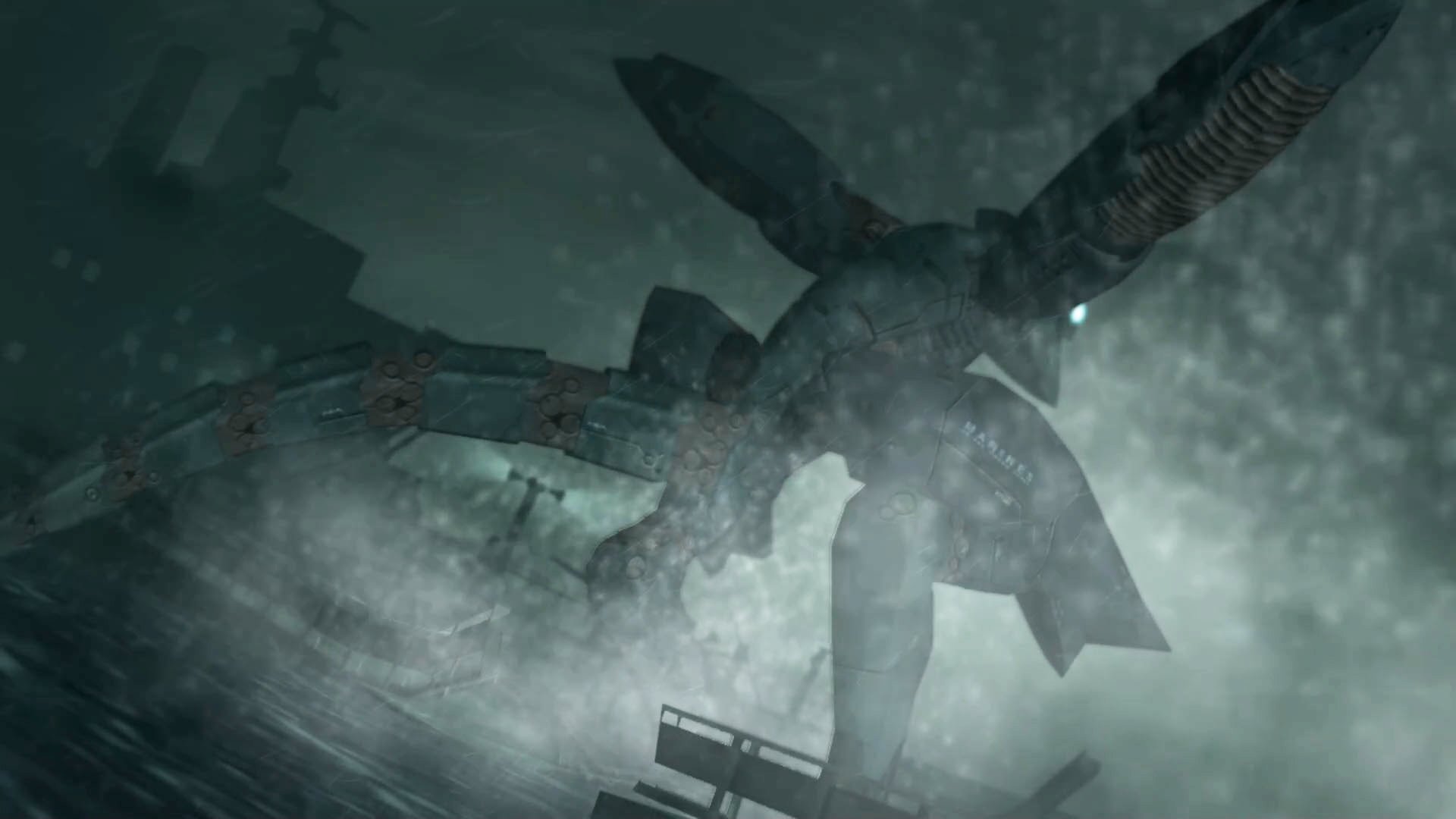
Nothing Ever Ends
On a macro level, the comparisons to MGS2’s version of America and actual modern day America are clear as day. Right now, basic democratic principles in the United States feel more fragile than ever, with most prominent Democrats reiterating again and again that the future of our nation is at stake in the upcoming election. While they’re not necessarily wrong—Donald Trump is a fascist who intends to rule as a dictator, and Republicans at basically every level of public office seem hell-bent on eliminating basic rights—the current state of affairs has brought Americans to a point where many people (including me) question if our leaders have any interest in actually representing the particular wishes of their constituents.
The existence of the Patriots in Sons of Liberty implies that this nation’s implementation of democracy has always been an illusion. To be honest, I felt the same way watching the Supreme Court overturn Roe v. Wade; seeing scores of politicians fail to oppose war crimes despite continued calls for peace; and witnessing massive reinvestment in the expansion of policing despite massive demonstrations against the institution’s documented history of racism and brutality. Even when we seem to have the “lesser evil” in our offices, it doesn’t always feel like democracy works as intended when the interests of the most vulnerable populations are routinely ignored.
Much like Raiden, I learn on a daily basis that not all my supposed allies are truly that helpful and that my noted enemies might be even worse than I imagined. I don’t even know which political structures and institutions— if any—I can fully trust anymore. With each passing year, I wonder more and more if our political and economic systems are in rapid decay, or if it’s always kind of been like this and we’ve never been able to fully stop it, at least not permanently. One atrocity ends, another takes its place, and so on.

Rise of the Machines
Looking to a more recent trend, the push towards normalizing generative AI has exposed not just the inherent fragility of the current flow of information, but what role humans will even play in its future. Sure, we’re not at a point yet in the U.S. where the government is using AI to restrict what we can and cannot see online, but there absolutely is a precedent for governments having that type of oversight of a population’s internet use. Who’s to say the U.S. government (or any government) wouldn’t use AI for such purposes down the line?
Sons of Liberty understands that the ability to mechanically control narratives is just as dangerous—if not more dangerous—than any giant missile-shooting robot. Any tool that provides the power to manipulate the flow of knowledge—and the framing of that knowledge—can and will be used for malicious purposes. Even when the Colonel/Rose AI explains to Raiden near the end of the game that such actions would exist to prevent the regression of humanity, Raiden responds the way any sane person should: what gives the Patriots the right to determine that for others?
Both the broad strokes and smaller details of Metal Gear Solid 2’s narrative support the same motif: You are farther away from having true power than you realize, and technological advancements can widen that gap. Still, you can’t let yourself fall into despair. That’s what Raiden and Solid Snake are here to teach us.
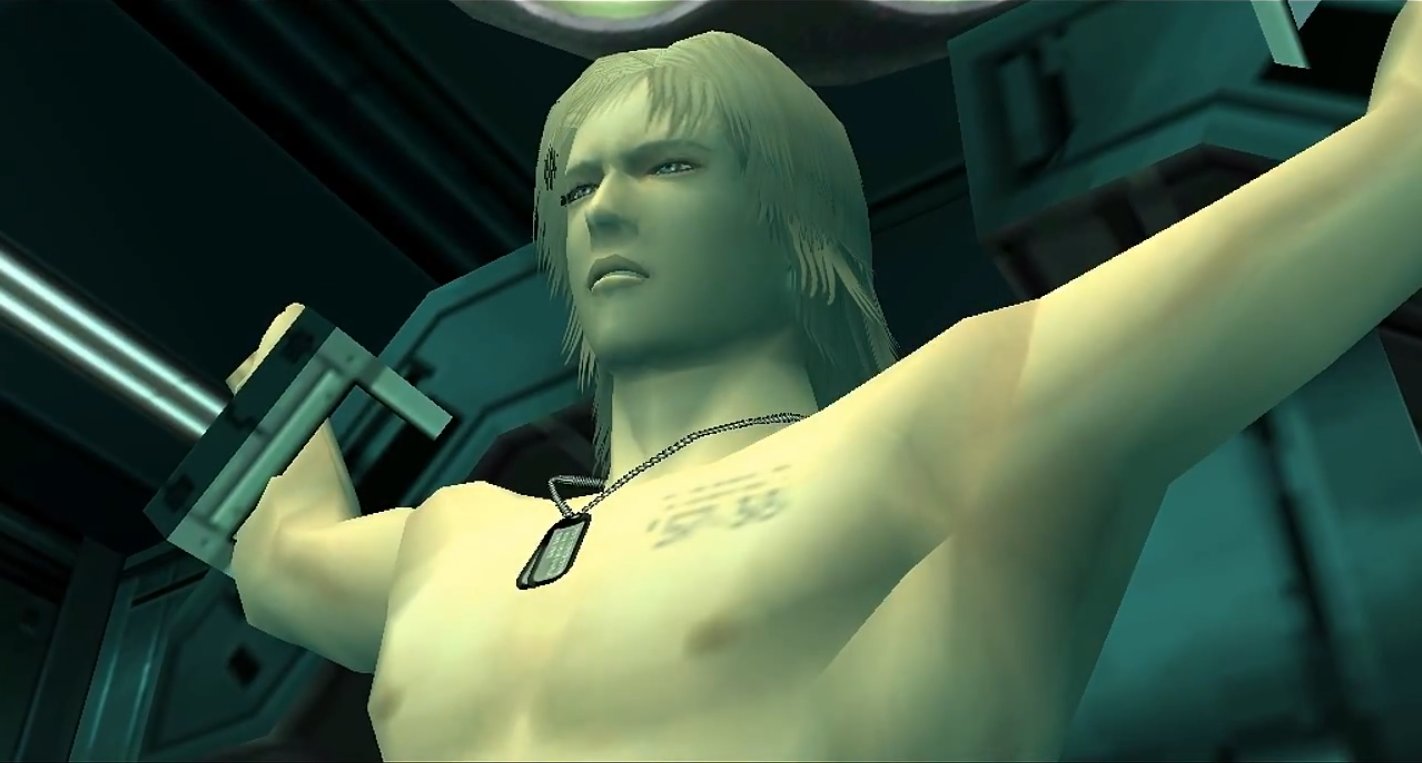
Losing Control You Never Had
In many ways, MGS2’s core experience centers on how little control the player starts with, and how little their actions matter overall. As Raiden, the player enters the Big Shell with no weapons, and can only unlock the radar map for each individual room by finding a computer in that area. The player can do nothing to harm Fortune in their first boss fight. Every time you seem to kill Vamp, he manages to survive. You disarm Fatman’s bombs and save all the hostages, but all of that was just a distraction. Even when you do everything right during the sniper section and successfully guard Emma from enemy combatants, Vamp fatally stabs her in the back anyway. You manage to enter the virus into the computer system to disable GW, but it doesn’t fully work right away.
Once Ocelot explains to Raiden that everything on Big Shell went according to plan and that Solid Snake’s appearance served as the only real variable, a sinking feeling came over me. Did it actually make any difference that I “got good” at many aspects of Metal Gear Solid 2? Should I have felt proud at all of nailing the sniper section, defeating Fatman in my first attempt, or perfecting tranquilizer headshots? Once again, there I was, feeling that pit of powerlessness, this time in game form.
Much like in any video game, though, the player in MGS2 does have full control of what they do in every room they enter. You’re the one sneaking past enemies, throwing chaff grenades to disable security cameras, crawling into narrow spaces, and putting mercs to sleep with your tranquilizer gun.
While the end results of every encounter and sequence are predetermined, player agency remains in Sons of Liberty. You choose which stealth mechanics to utilize, how to deal with enemies, how to proceed, what tools to use, and when to use those tools. The entirety of the plot feels out of your control, but on a minute-to-minute basis? All you.

Power Through Fantasy
One of the biggest draws of video gaming as an art form is the notion of inhabiting another being and having influence over that being’s actions. If the player-character is especially strong and solves every problem with violence, some may call that a “power fantasy.”
In a sense, though, isn’t every game some kind of fantasy about having power? It’s not always about the power of violence; aren’t we always seeking the power to build a house, solve a mystery, hit a home run, operate a farm, drive a racecar, or anything else that feels especially daunting in real life?
I wouldn’t call MGS2 a “powerless fantasy,” but the game plays with the idea that power, conceptually, lies less in individual actions or abilities and more in a big picture sense. Can Sons of Liberty be a power fantasy if the protagonist has little to no control over their own destiny throughout? Maybe not broadly speaking, but it does matter that the player still needs to progress past every hazard and master the game’s basic systems.
No matter how detached you feel from any level of influence, it’s always worth it to resist where, when, and how you can.
Ultimately, Sons of Liberty believes that the individual has not just the power to act in the moment, but to also build a legacy through such actions. Maybe outside forces established the circumstances of your birth and upbringing, but you still have the opportunity to create your own path. Raiden’s folly throughout MGS2 isn’t just that he was tricked over and over again; it’s that he doesn’t actually make any decisions completely of his own volition until the end. Everything he’s done up to this point, both professionally and personally, has been a command, or at the very least a predictable response.
“Choose your own legacy,” Solid Snake tells Raiden in the closing moments of the game. “It’s for you to decide.”
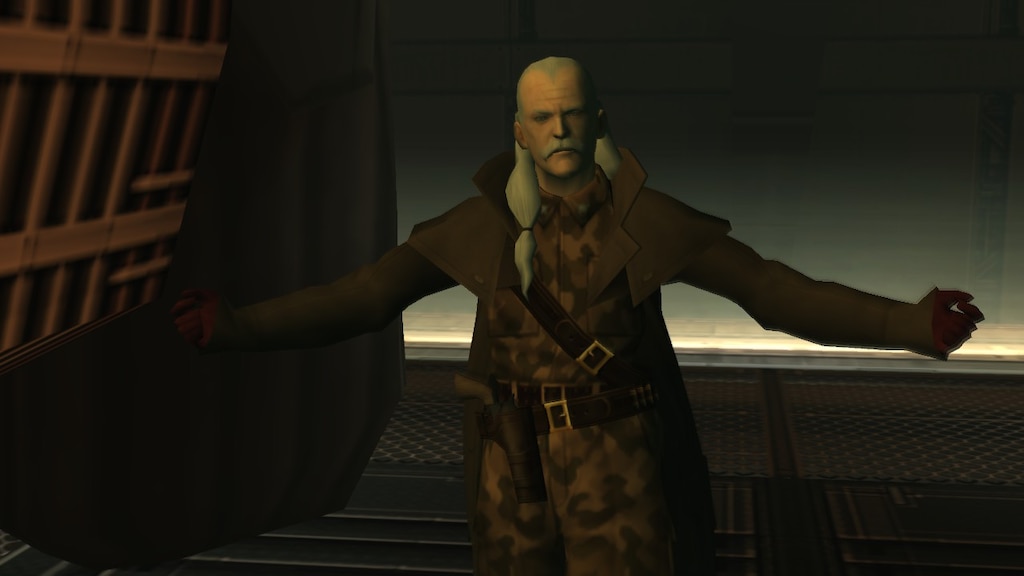
Not Everything Was Predicted…
Not everything about MGS2’s story exudes a pinpoint prescience about modern day America. President Johnson appears to demonstrate basic political decorum and expresses genuine regret over his transgressions, while many of our current elected leaders (and even Supreme Court justices) see no need to display even an ounce of shame or professionalism. The Patriots work completely in the shadows, while our worst political malefactors basically do or say whatever they want with little to no material consequences.
Meanwhile, the emergence of AI is not solely responsible for the collapse of our modern media landscape and the decay of our communication portals. The spread of misinformation is more rampant than ever. Big business, led by venture capitalists, hedge funds, and private equity groups, have brutally devalued real journalism and the people who do it, and the lack of proper oversight and control of social media platforms has led to an environment where we’re not sure how often we’re conversing online with actual human beings. Sure, the advent of generative AI tools presents real threats to honest, well-researched reporting and editorial work, but it seems more like the final nail in the coffin, not the cause of death.
Still, regardless of which scenario you find more terrifying—MGS2’s proposition that faceless Patriots run everything in America, or our current reality where we can clearly see evil and corruption at all times—that harsh sense of powerlessness remains. Hideo Kojima and company couldn’t have possibly predicted everything about the world 23 years into the future, but they managed to convey that feeling of political predestination; or, rather, that whatever sense of control we think we have is nothing but smoke and mirrors.
We see this today not in the form of giant robots or dudes with wild names like Solidus and Revolver Ocelot. We see it with voter suppression, lifetime appointments, the widening wealth gap, police brutality, environmental racism, massive corporate deregulation, lobbyism, and violent hostility towards peaceful protests. Most notably, we see it every single time our supposed leaders fail to do anything about these issues, lest they ruffle the wrong feathers. Regardless of the source of such impotence, it’s hard not to feel boxed in—or even neutralized—by it.

No Letting Go
In no way would I argue that this feeling of powerlessness justifies inaction or indifference. Determining that victory isn’t attainable obliterates any chance that it is. No matter how detached you feel from any level of influence, it’s always worth it to resist where, when, and how you can.
The conversations between Raiden and Solid Snake throughout the experience underscore this notion. From Snake’s perspective, the first step towards successful resistance is identifying a cause you care about, not an institution. What matters most is our decision to fight back, and to try and fix what we can. That way, even if we don’t solve everything, we can at least create the tools for a better future.
This sentiment is best expressed in a post-game monologue where Snake highlights the importance of passing down historical knowledge and one’s personal experiences, no matter how fraught and upsetting such information may be:
“Life isn’t just about passing on your genes. We can leave behind much more than just DNA. Through speech, music, literature and movies… what we’ve seen, heard, felt… anger, joy and sorrow… these are the things I will pass on. That’s what I live for. We need to pass the torch, and let our children read our messy and sad history by its light. We have all the magic of the digital age to do that with. The human race will probably come to an end some time, and new species may rule over this planet. Earth may not be forever, but we still have the responsibility to leave what traces of life we can. Building the future and keeping the past alive are one and the same thing.”
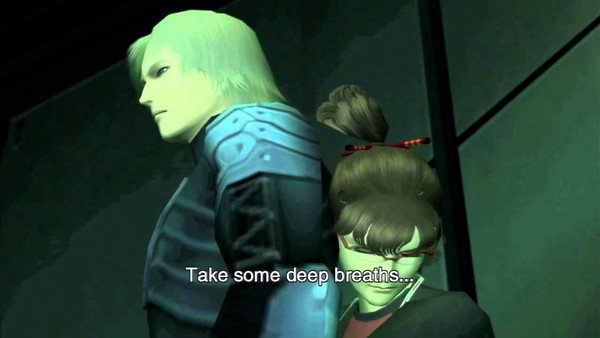
Moving Forward
I’ve often turned to video games to feel powerful. Whether it’s saving the townsfolk, averting a massive evil force, or simply leading the New York Yankees to another World Series title, games have allowed me to experience a level of confidence and strength I know I don’t have in my actual life.
Metal Gear Solid 2 twisted that structure for me, yet I still felt a similar kind of power in it I typically feel with other games. Despite the contrivance of it all, I got to inhabit someone with heroic tendencies and impressive abilities. Raiden’s complicated history continues to haunt him in the present, but if nothing else, he learned the importance of—and power behind—forging one’s own path of virtue. Feeling powerless in the face of oppressive forces doesn’t preclude one from recognizing, acknowledging, and addressing such forces in the first place.
No matter how detached you feel from any level of influence, it’s always worth it to resist where, when, and how you can.
In the grand scheme of things, I remain inadequate to counteract all the ills of this world on my own. Still, I need to remind myself every day, whenever I feel that pit in my stomach, that I’m still alive and still standing, and therefore have some control, no matter how little. I have the power to improve my immediate surroundings, be kind to others, give money when I can, and speak truth to power. It’s not much, but it’s not nothing, either.
Sam has been playing video games since his earliest years and has been writing about them since 2016. He’s a big fan of Nintendo games and complaining about The Last of Us Part II. You either agree wholeheartedly with his opinions or despise them. There is no in between.
A lifelong New Yorker, Sam views gaming as far more than a silly little pastime, and hopes though critical analysis and in-depth reviews to better understand the medium's artistic merit.
Twitter: @sam_martinelli.










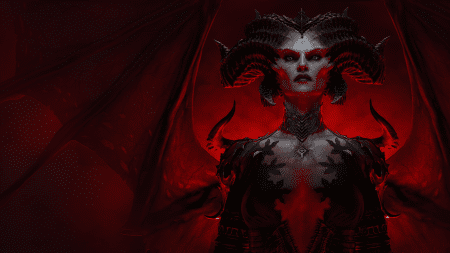
3 Comments
The author proved that he learned nothing from this game, as he has fallen victim to the control of the far left-wing. I fall centrist on the political spectrum. Author was making an amazing point until he called Trump a dictator and trying tri strip away basic rights, he is feeding into the false reality someone else is feeding him, henceforth living in fear
If that’s your only takeaway, you need a new pair of reading glasses. Also, Trump can go to hell.
Trump has had parallels to several previous dictators and the way they controlled the media and used the policies they did to strip away human rights. Take a moment to think about your amendments and what rights you still have. As well as what would happen if you were torn from your family. even still believe what you will.
Author was making a great point in general, the story of MGS2 talks about the rise of ai and spread of misinformation and that is more relevant than ever. Most importantly “[we’re] still alive and still standing, and therefore have some control” and I think that is an especially important takeaway in this world. In our lives we still have control over how we interact with the people we come in contact with, so be kind to others, respect their views and do what you can to make the world around you a better place..